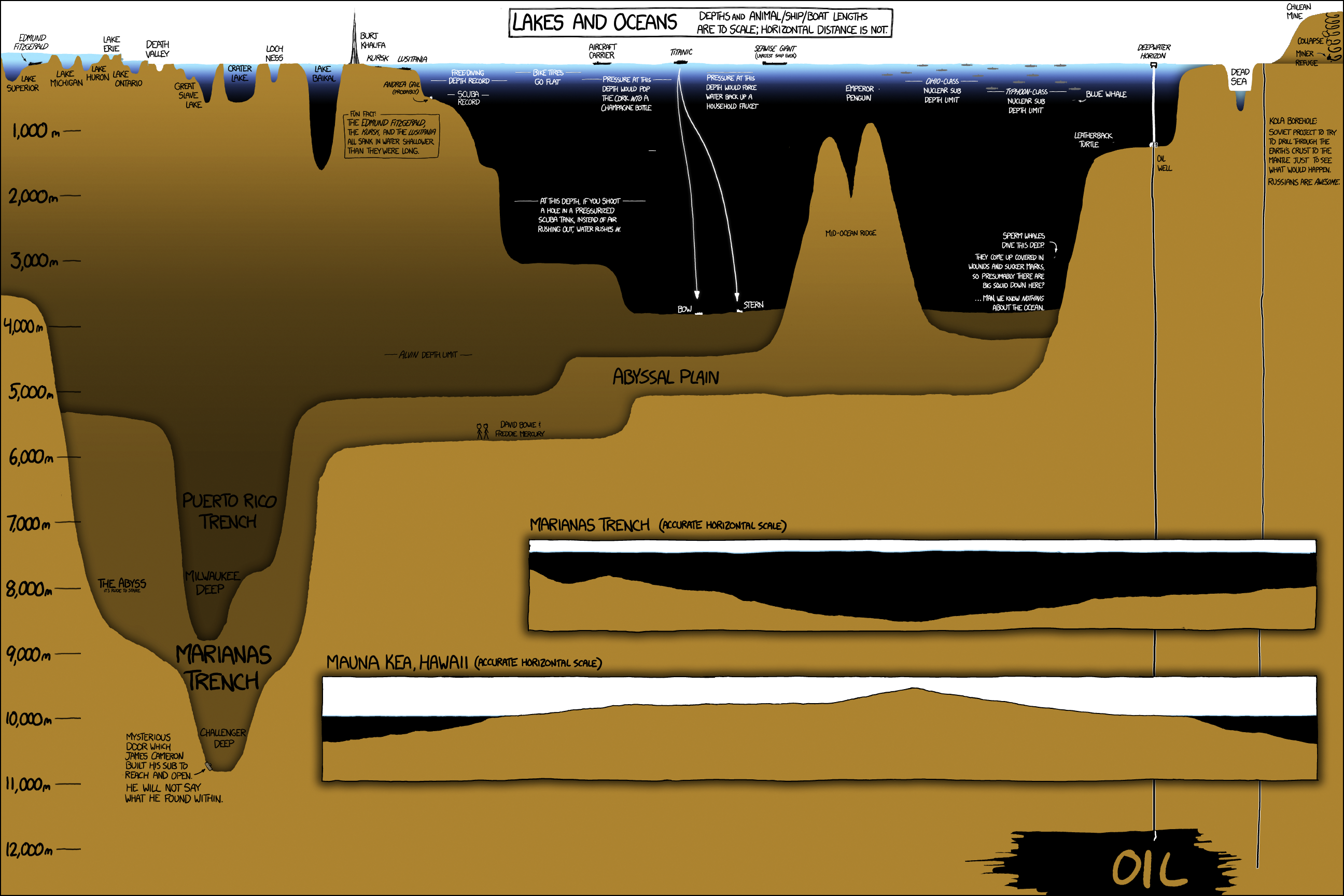
Have you ever wondered:
What would happen if all the bodies of water on Earth magically disappeared?
The answer – involving ships plummeting kilometres down to the ocean floor – is entertaining. Randall Munroe of xkcd.com explores this question as part of his What If? series. He has removed all the ships from the sea. He has discussed slowly draining the world’s oceans, and in a follow-up, dumping all that water on Mars. Now he drains the oceans in an instant:
The Titanic sank in about two miles of water. After it disappeared beneath the surface, the two halves of the ship took between 5 and 15 minutes to reach the bottom. Without the ocean there, it would have reached the bottom in about 30 seconds, striking it at airliner cruising speed.
As usual, it’s the stuff that happens afterwards that is the most interesting. Hang onto your seats.
Read the full What If? here.

















